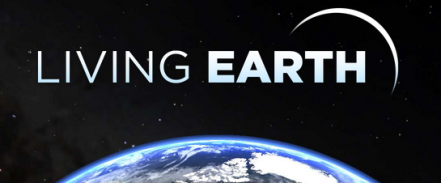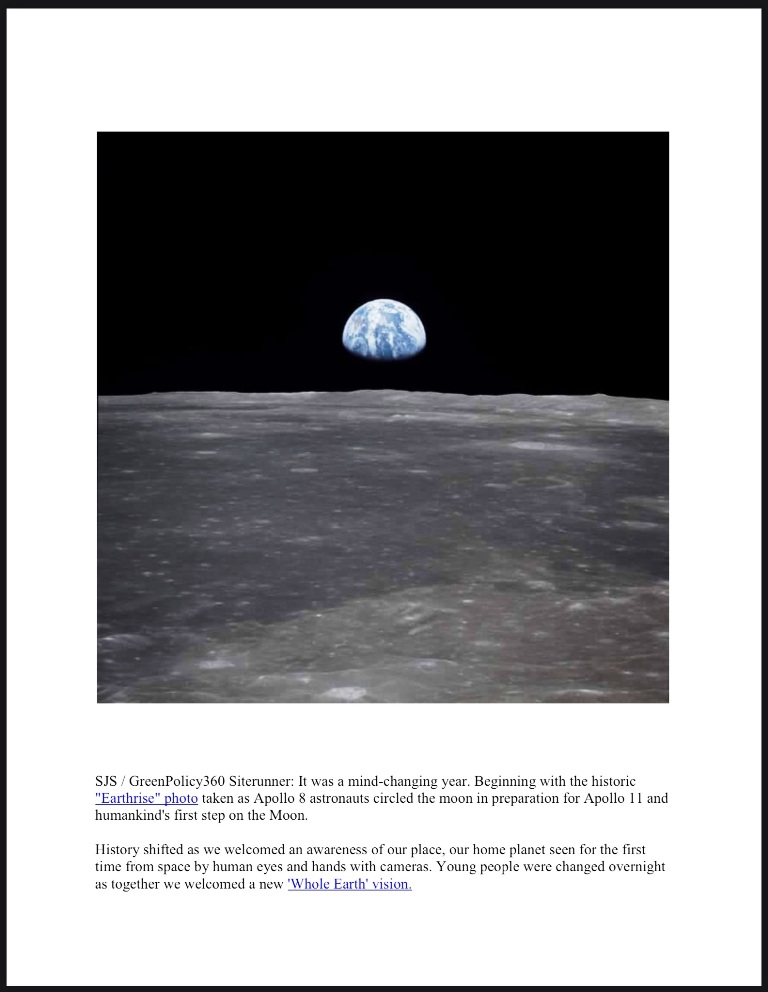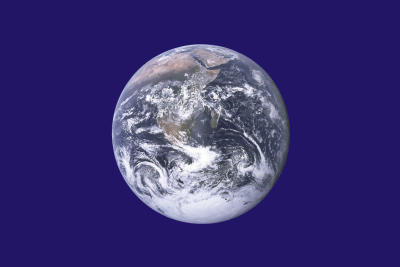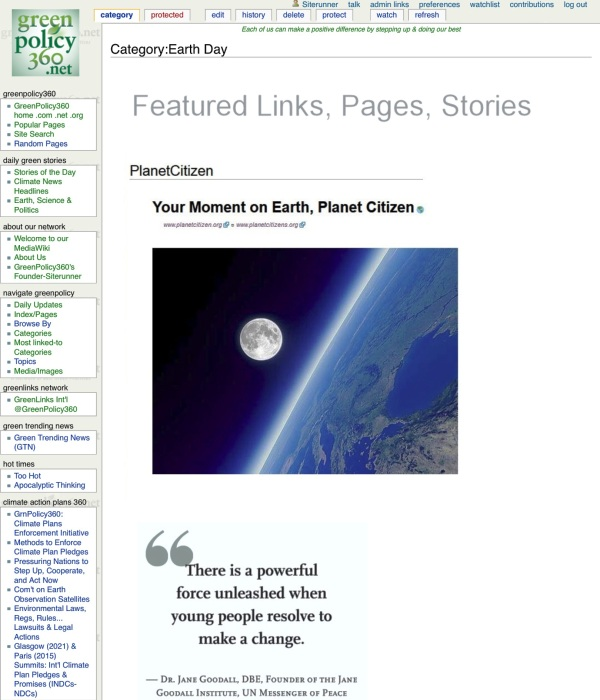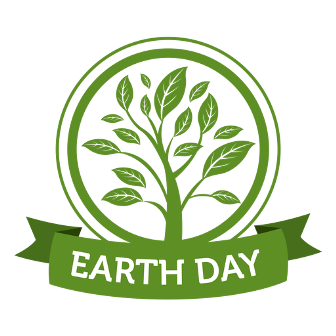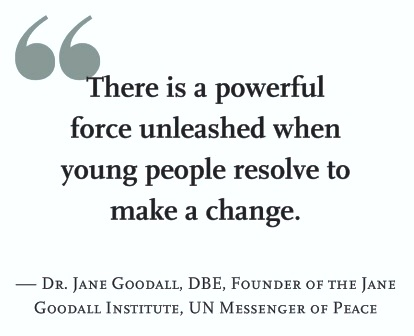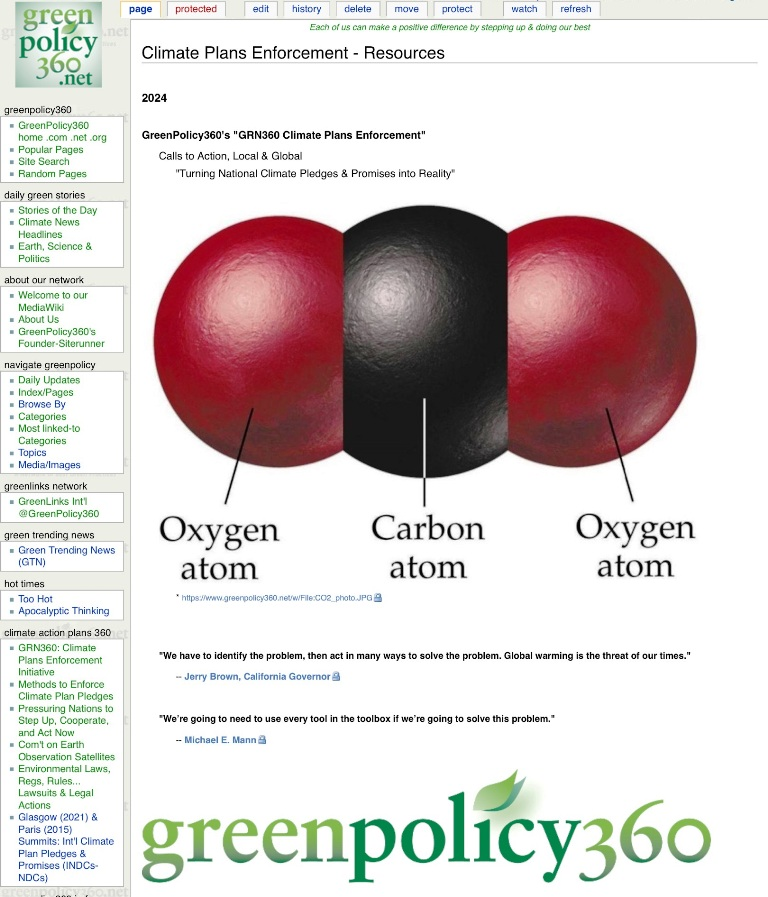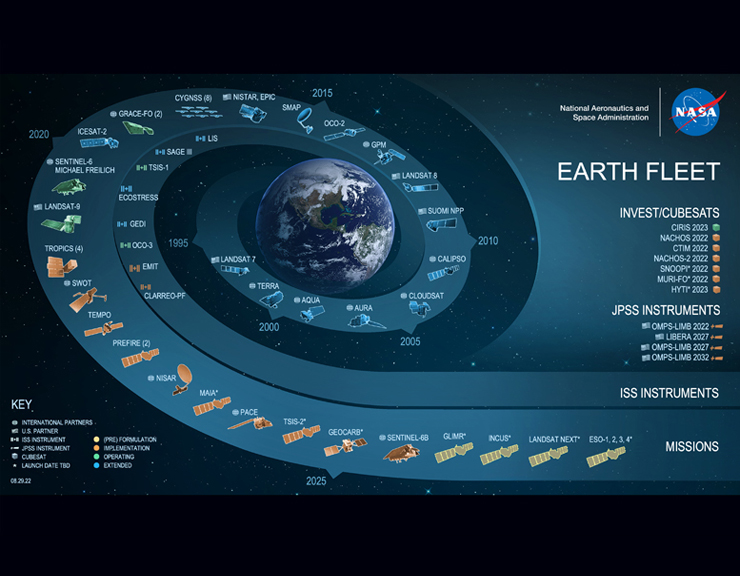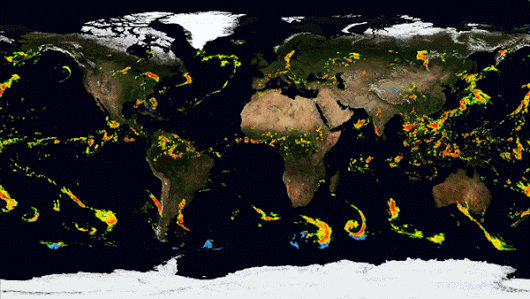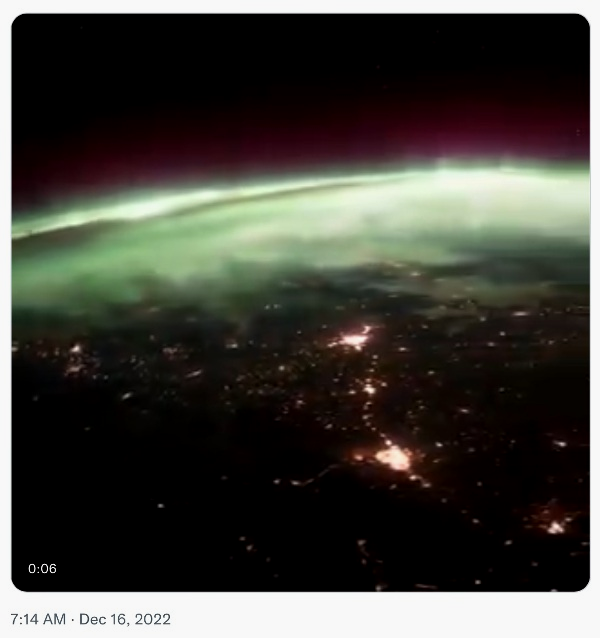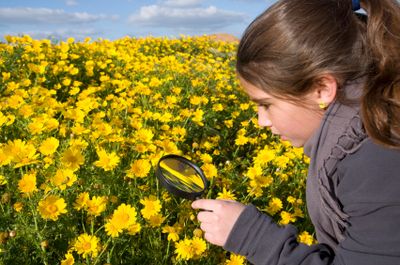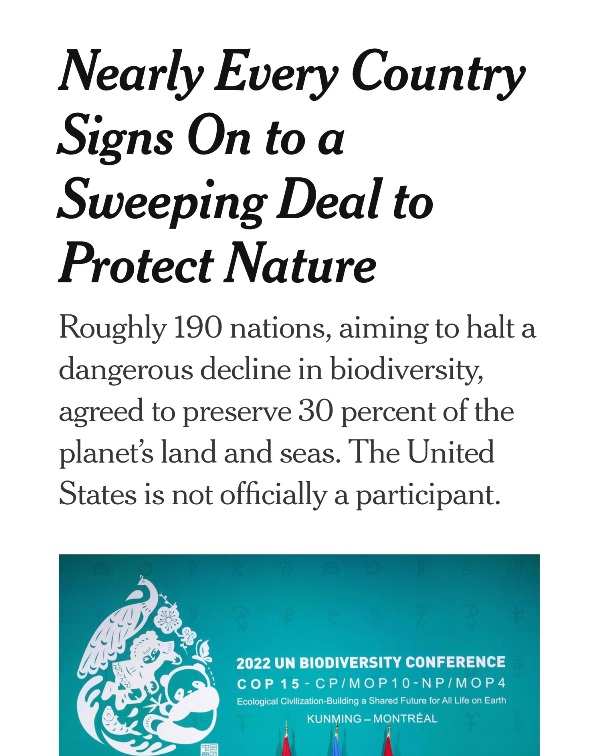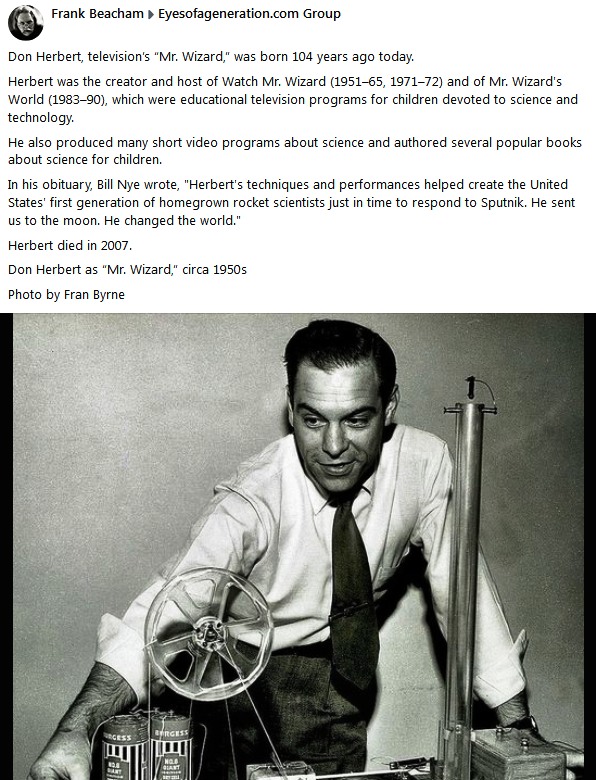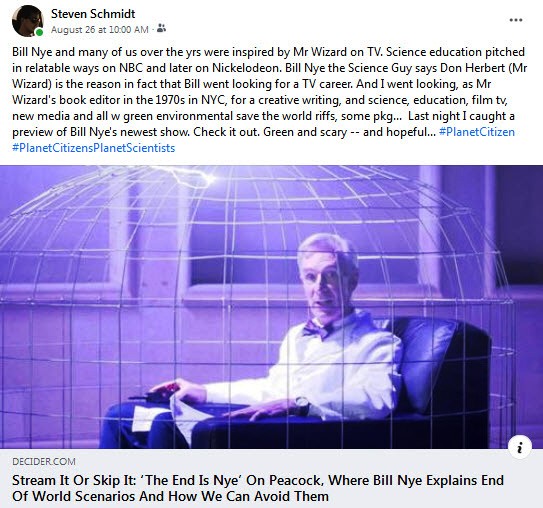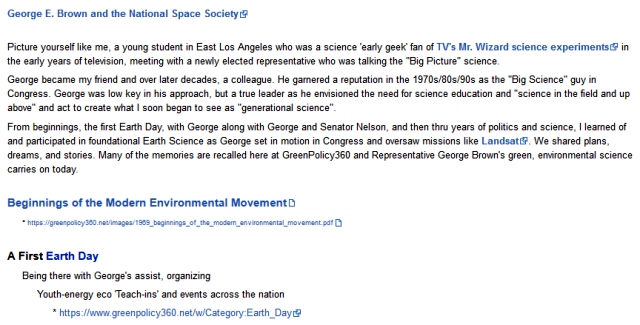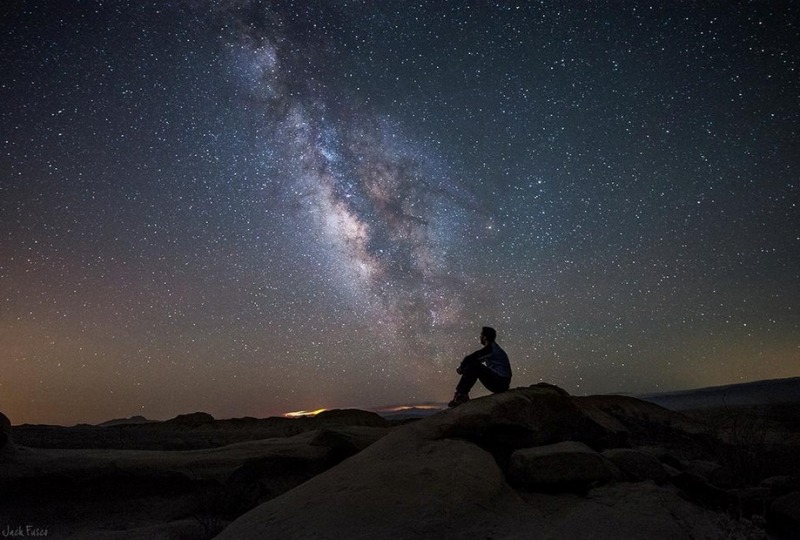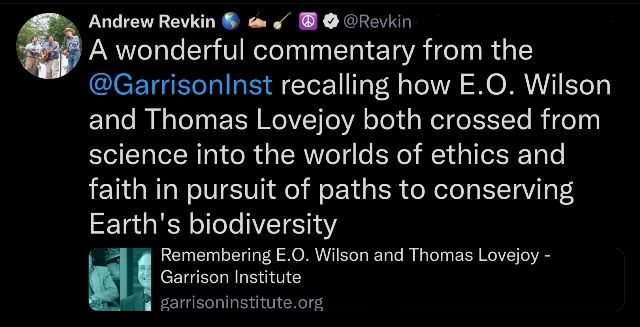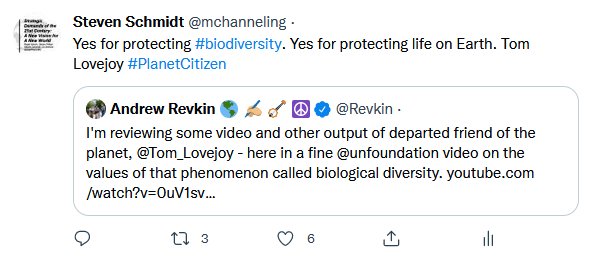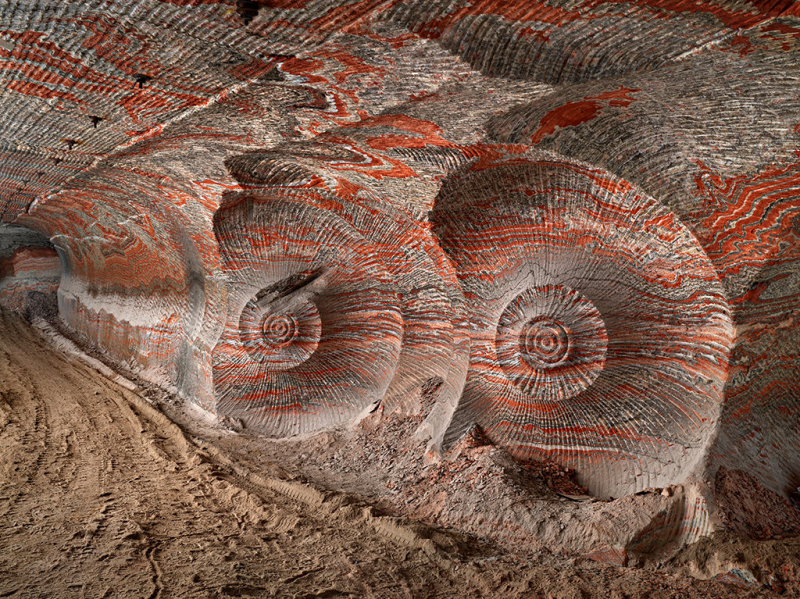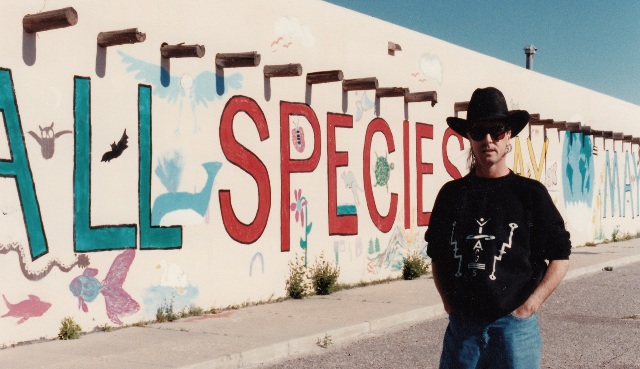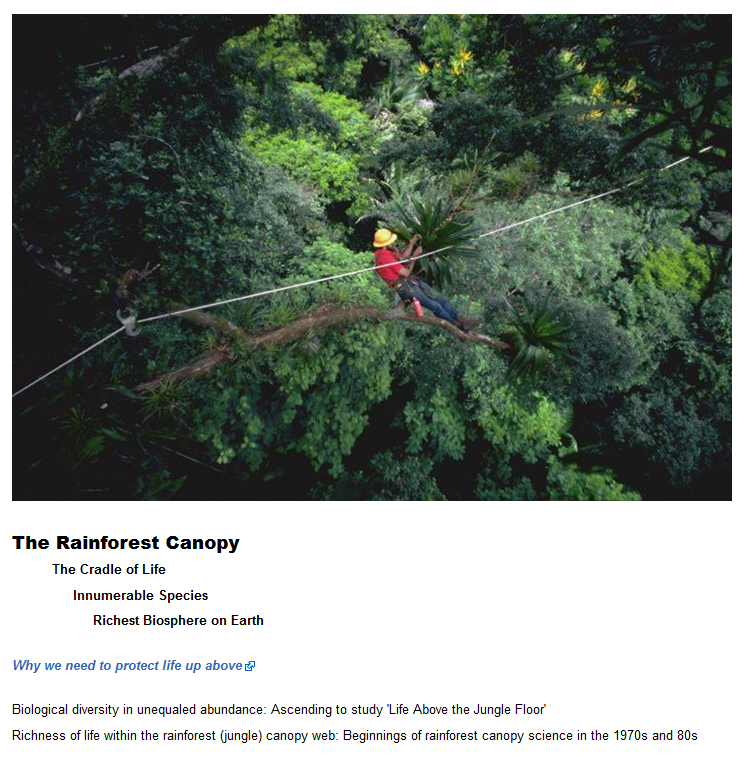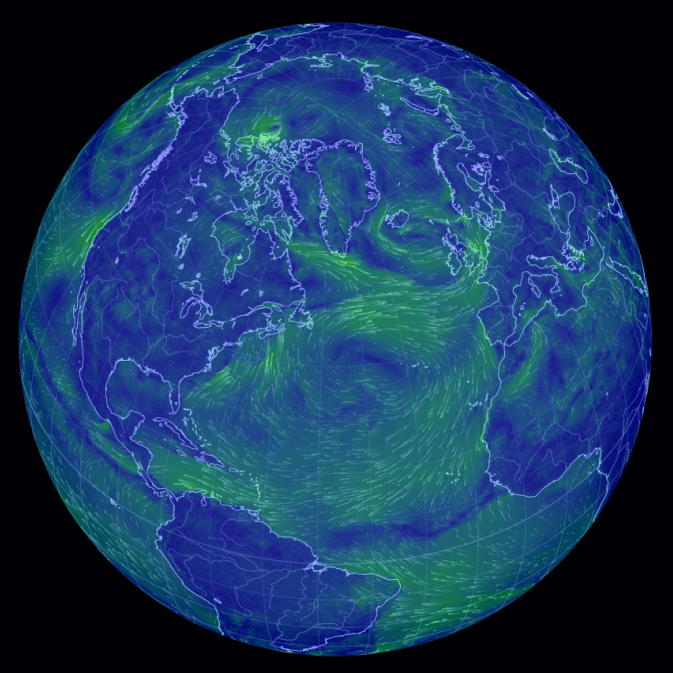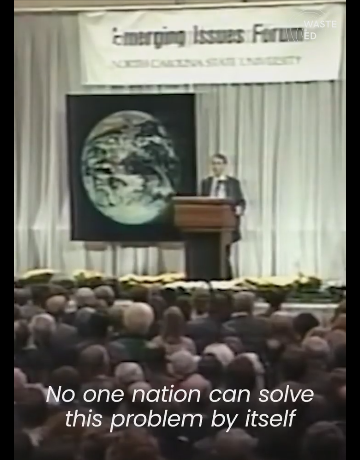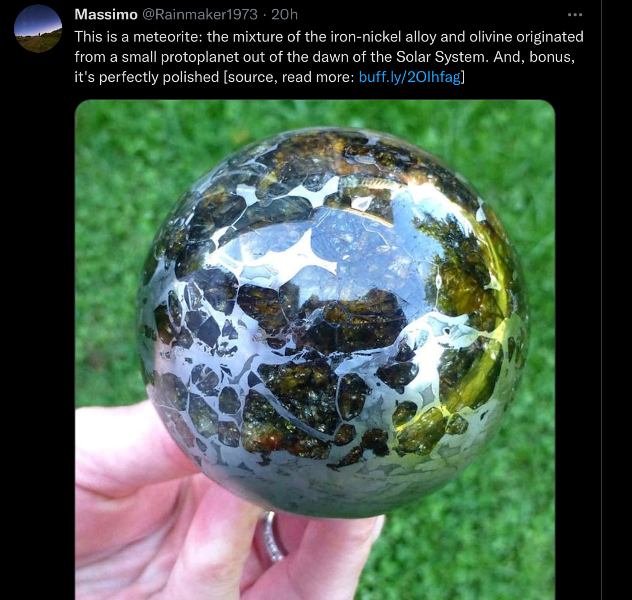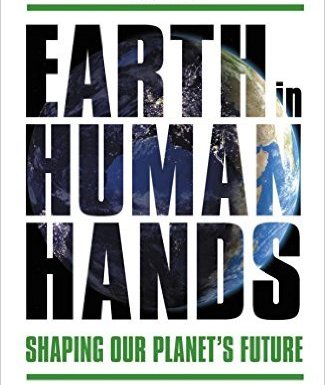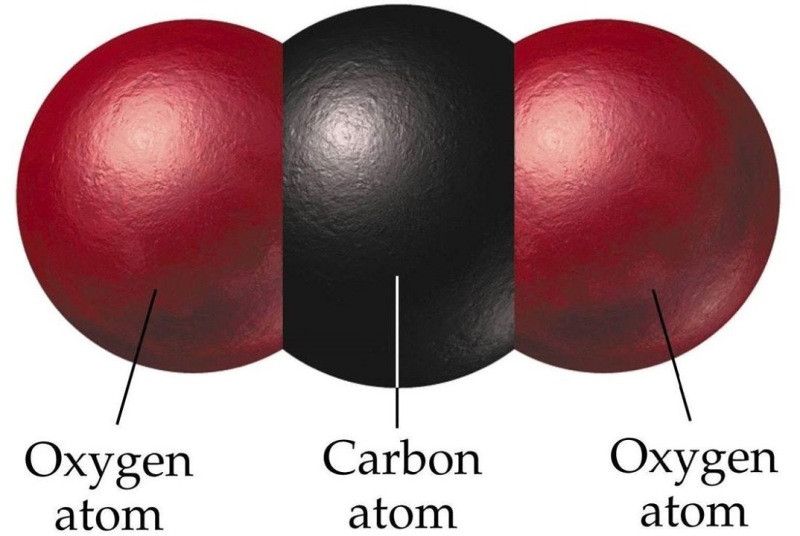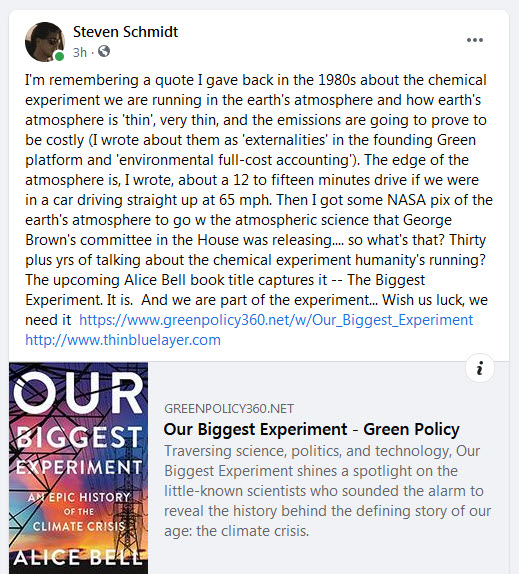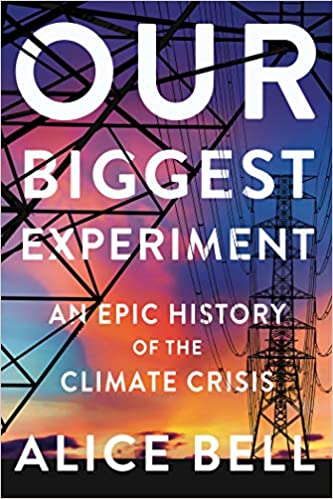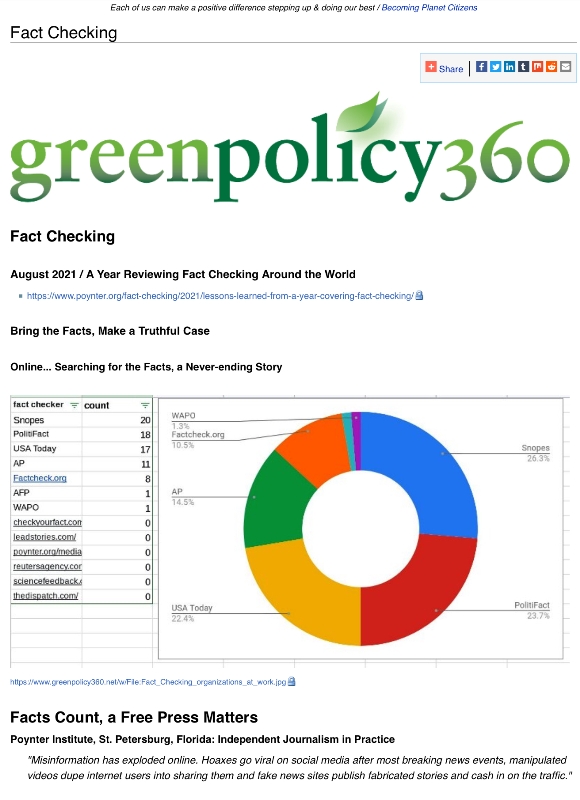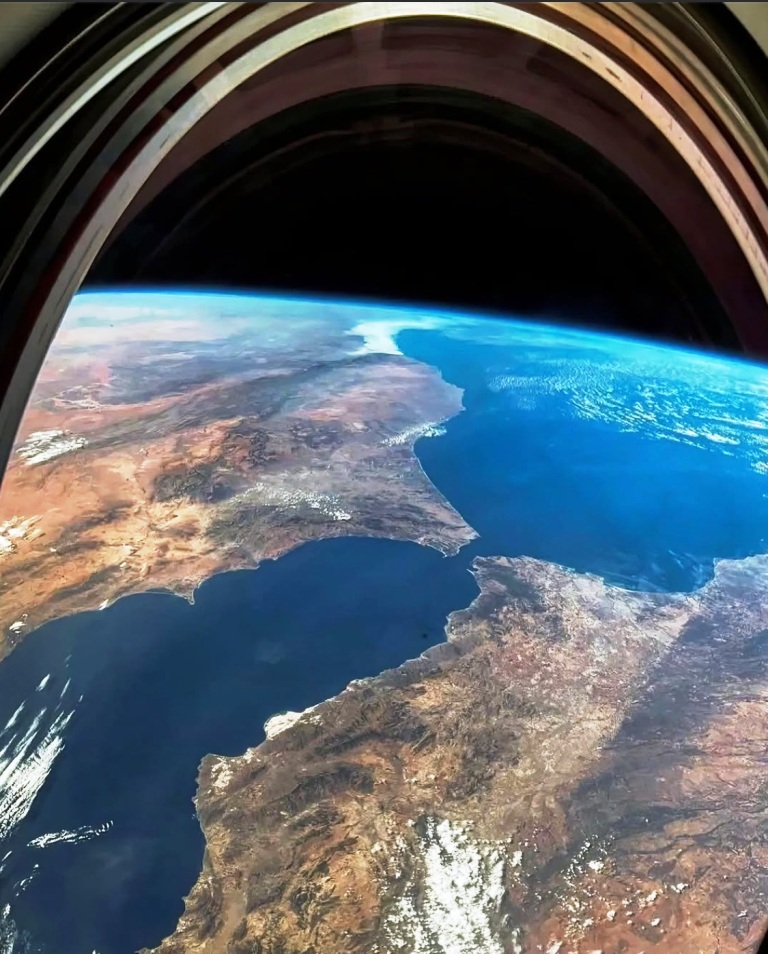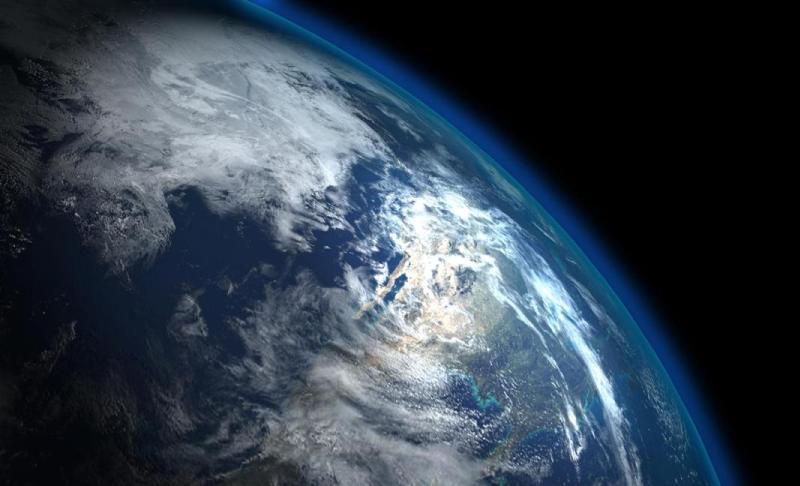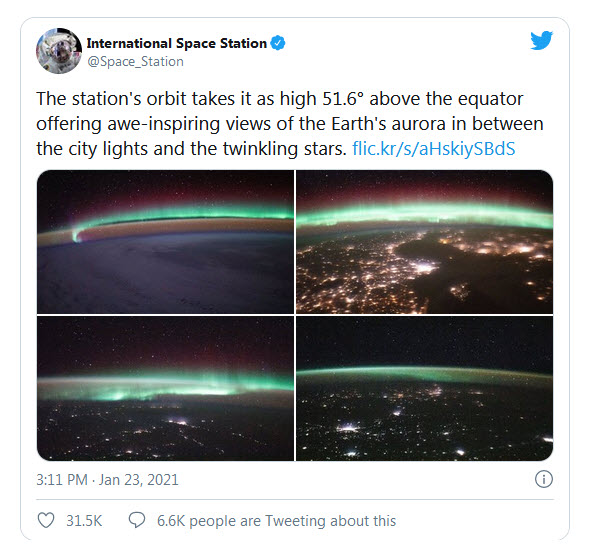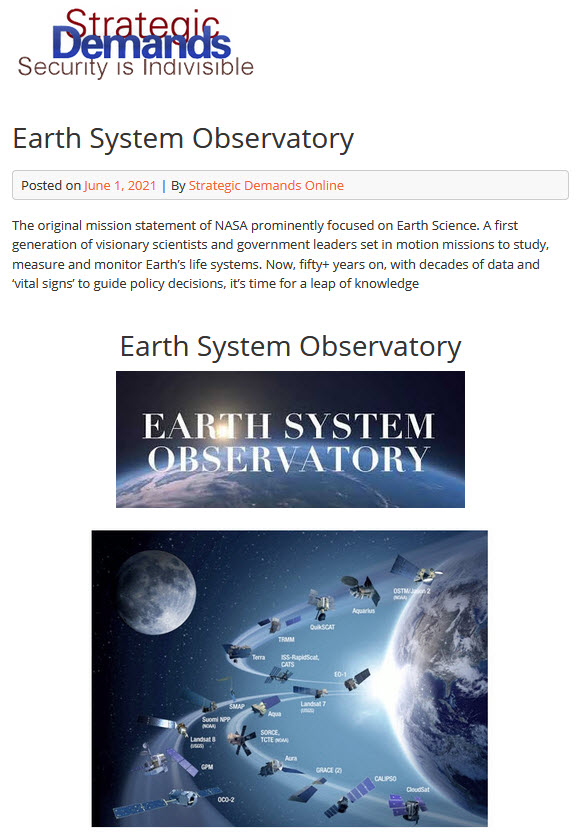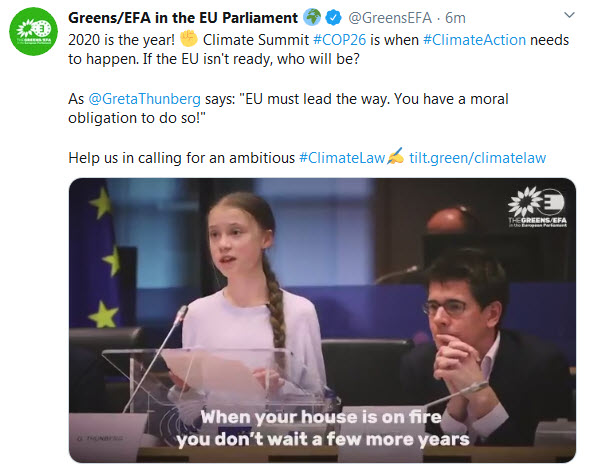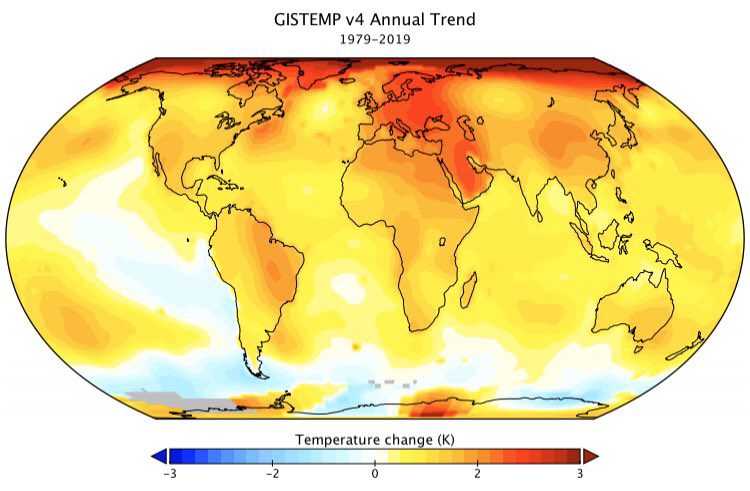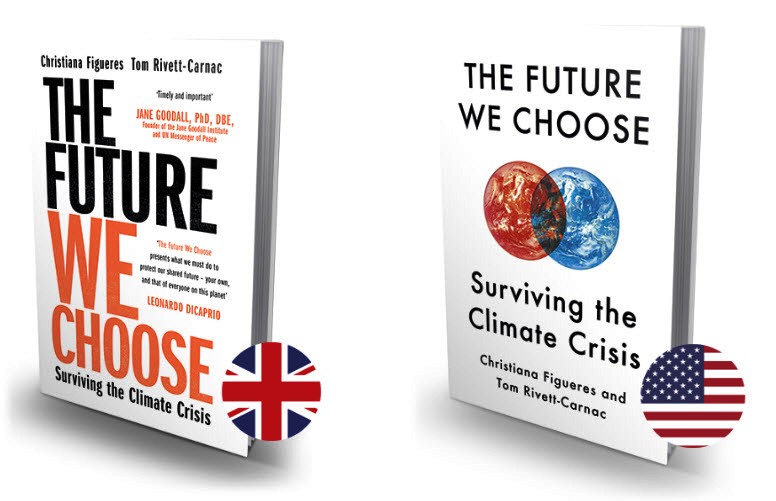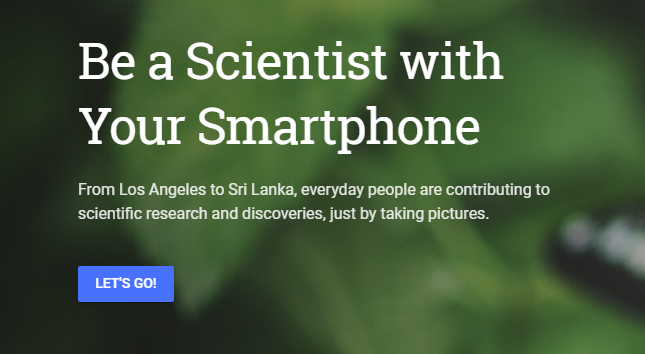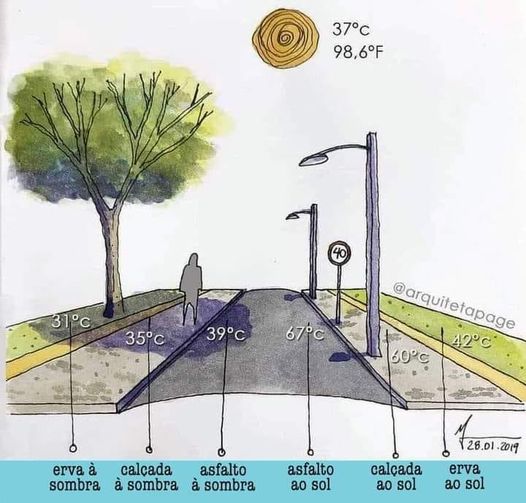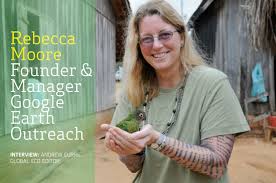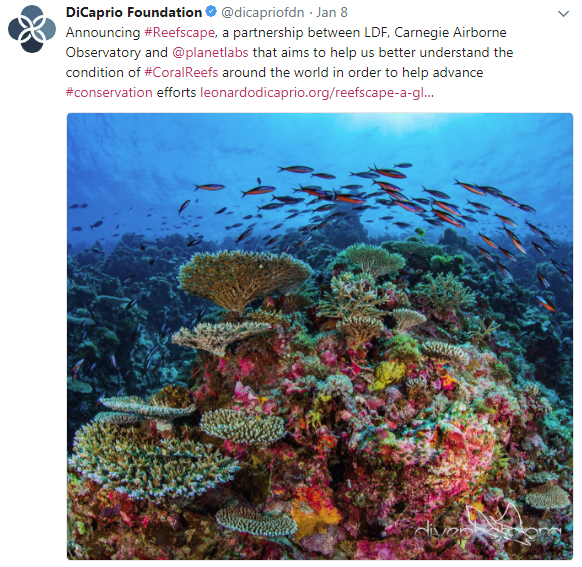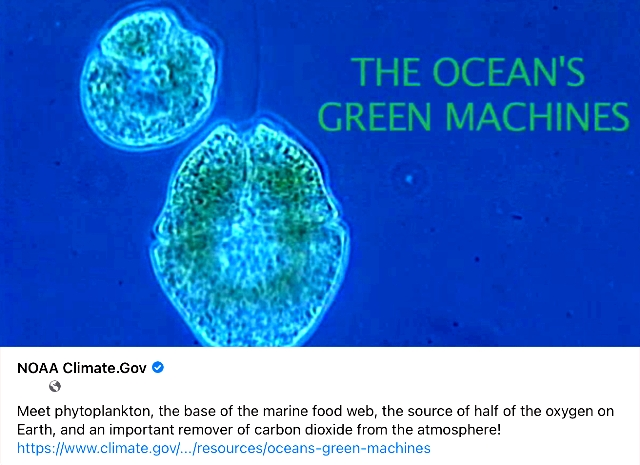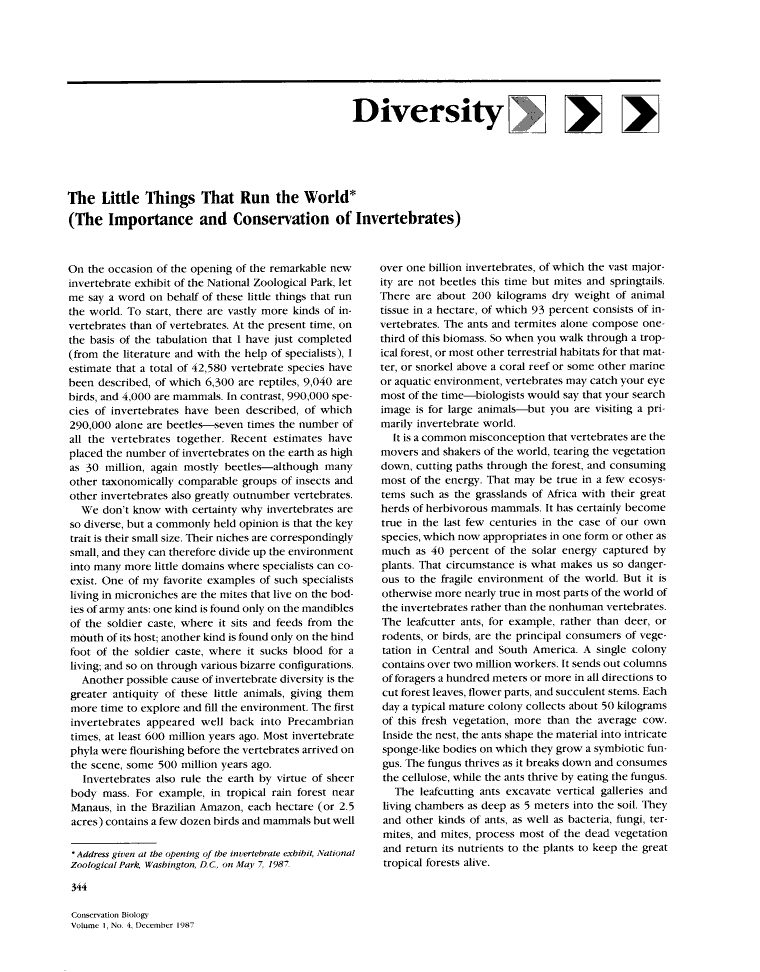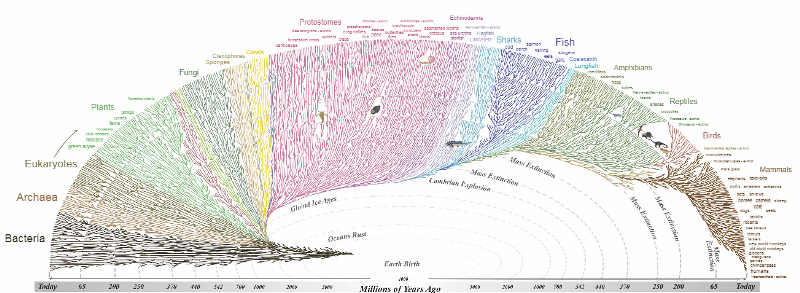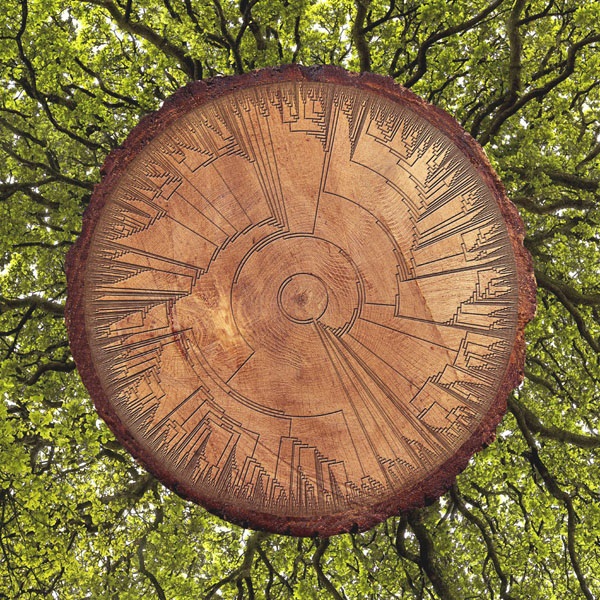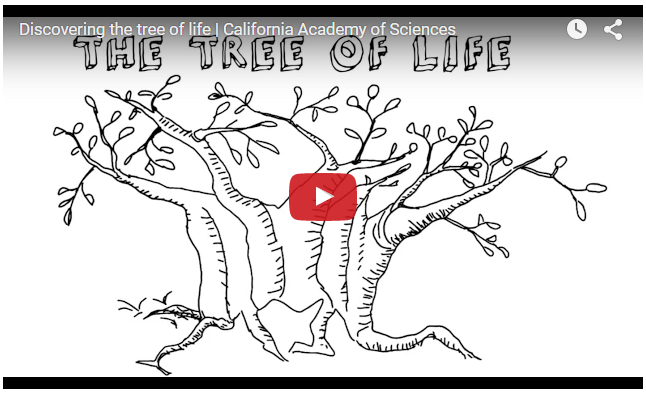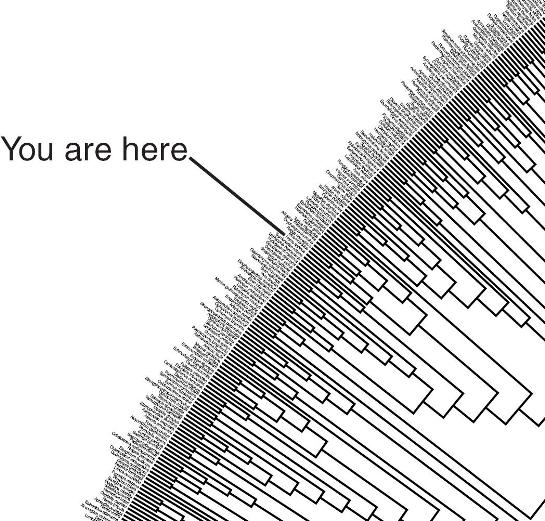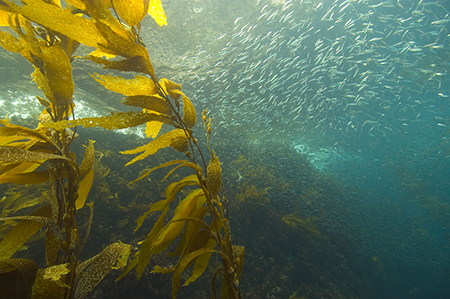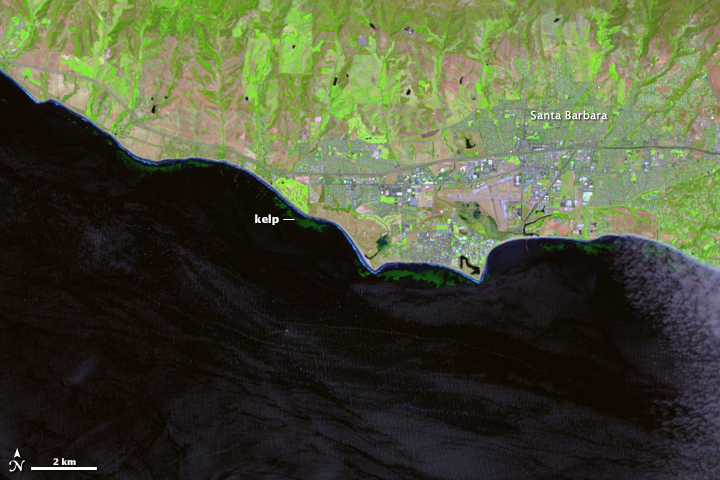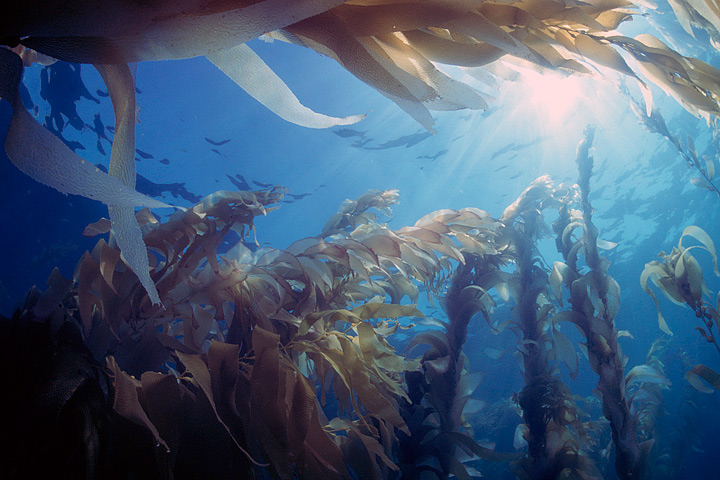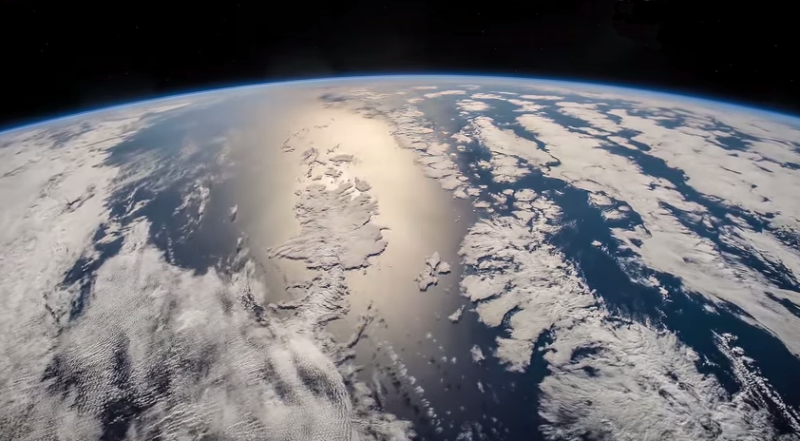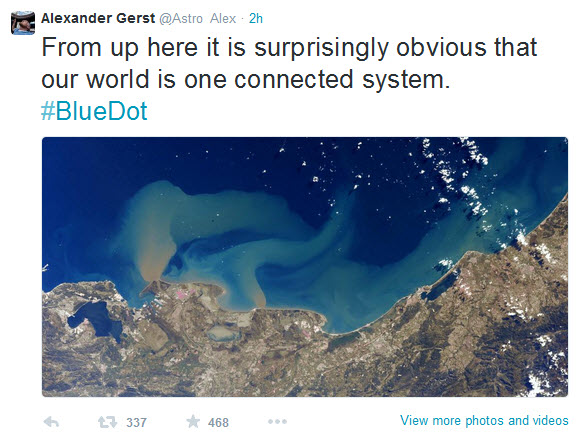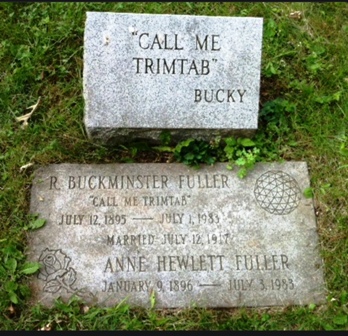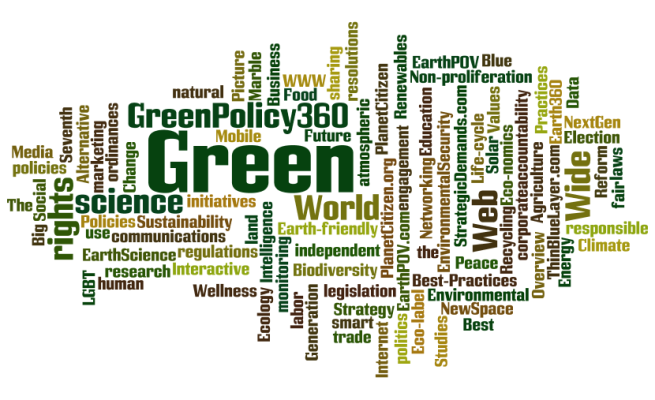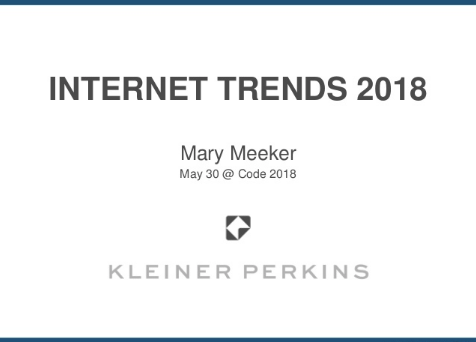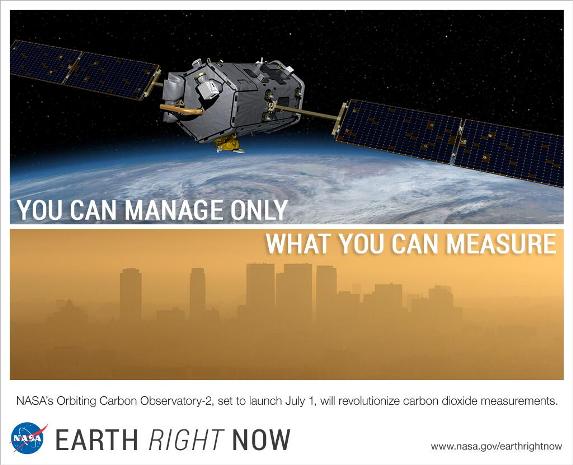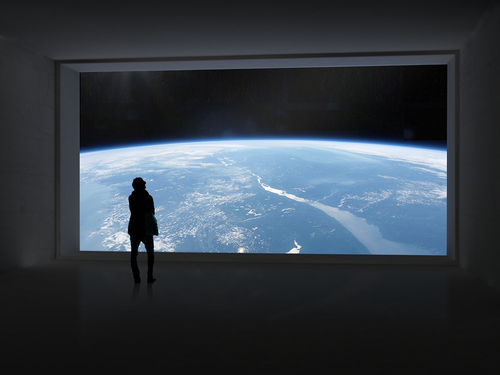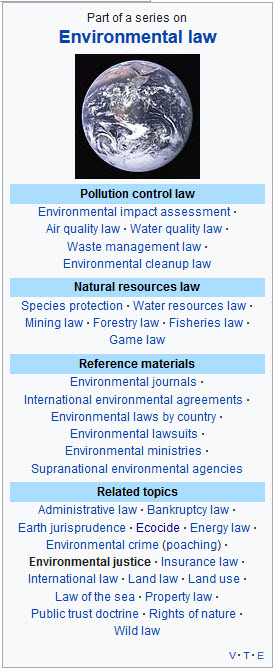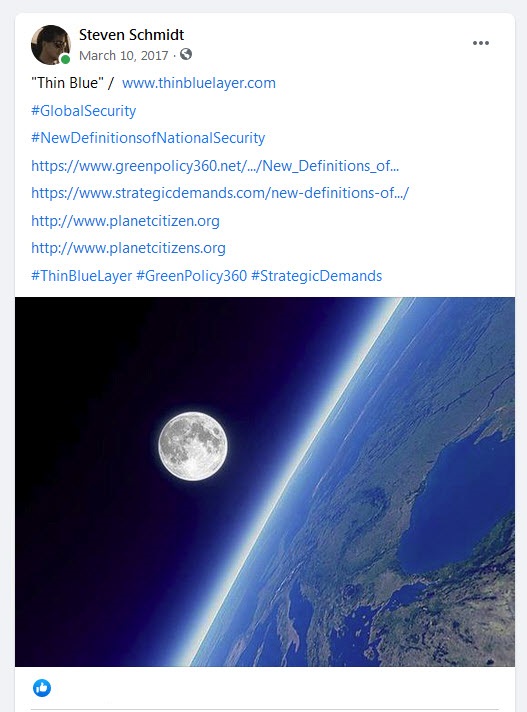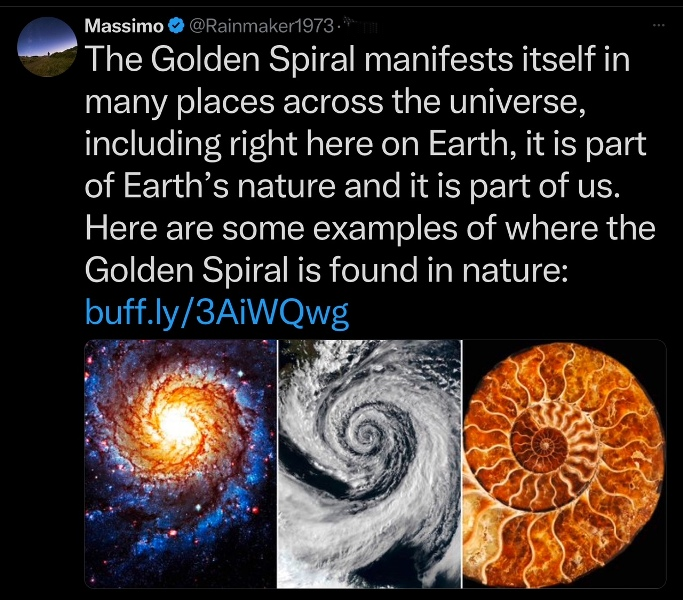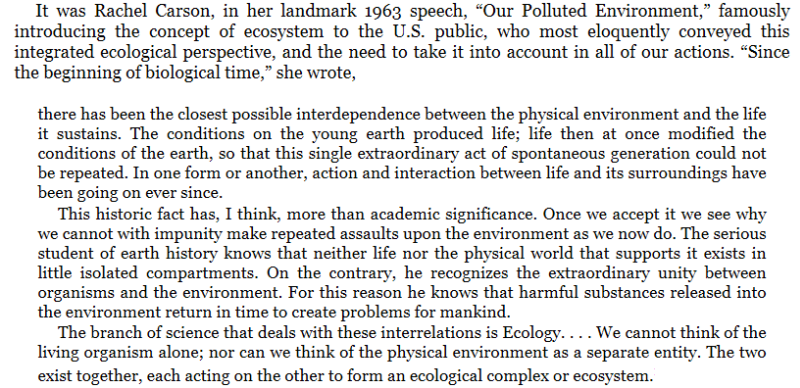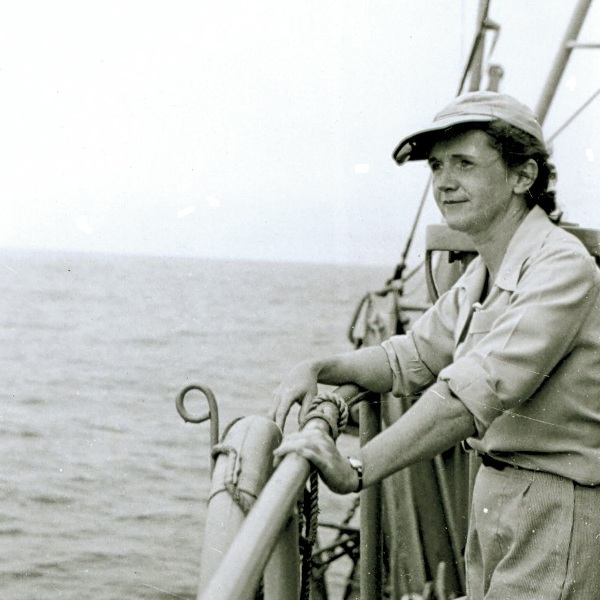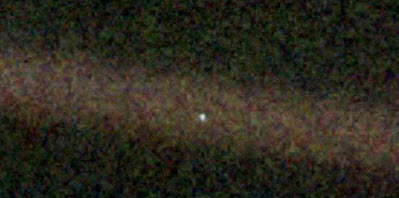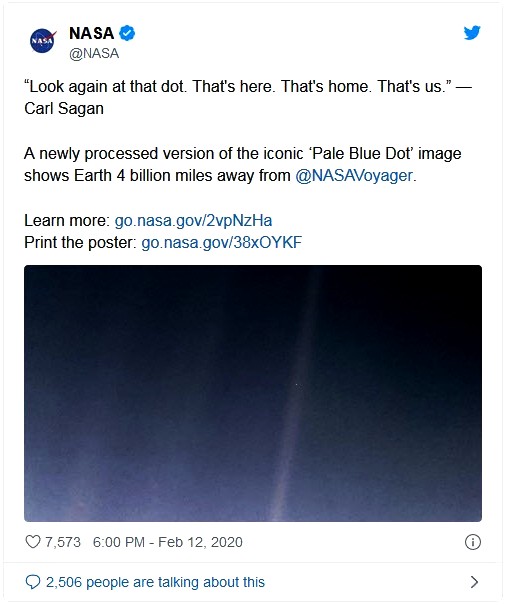Planet Citizens, Planet Scientists: Difference between revisions
Siterunner (talk | contribs) No edit summary |
Siterunner (talk | contribs) No edit summary |
||
| Line 11: | Line 11: | ||
::'''[[Planet Citizen Vision of Living Earth]]''' | ::'''[[Planet Citizen Vision of Living Earth]]''' | ||
::[[File:GrnPolicy360.png]] | ::[[File:GrnPolicy360.png]] | ||
Revision as of 16:59, 5 January 2025
- 'Earthrise' ... Whole Earth Beginnings of a Modern Environmental Movement
- Earthrise | December 1968
The "Earth Day" Flag
The First "Earth Day" in 1970: An Idea for a Green 'Teach-In'
- A Santa Barbara Oil Spill, a U.S. Senator Visits Us & Talks Bring Action
GreenPolicy360 Siterunner's personal memories, a story of being there and being 'into' a blue-green vision...
April 1970
Celebrating the First 'Earth Day'
SJS/GreenPolicy360 Siterunner: On the first Earth Day, April 22, 1970, a beginning of green ideals and ideas emerged in a serious way... Today Earth Day continues on as a movement and a political cause. Now we are a diverse mix, across the globe, employing the Internet with many voices, colors, ages, especially young people joining in. We continue on year after year, decade after decade.... We are strongly confronting and working to solve our generation's existential challenges. Reaching across our home planet, touching and interacting with planet citizens, looking to share solutions to pressing problems and challenges.
Environmentalism took on new forms and shapes with ideas that became a legal platform, a first generation of environmental laws that would go worldwide. A new "counterculture" with youthful vision and organizing added their voices and stood up to create the beginnings of a global environmental movement.
- https://www.greenpolicy360.net/w/File:Env_policy_laws_US_%27the_beginning%27_of_env_era.jpg
- https://www.greenpolicy360.net/w/Category:Environmental_Laws
Earth Day Is Every Day ... and Every Day Is Earth Day
With a goal of protecting life, a new environmental movement began to grow, a "Whole Earth" vision seen for the first time from space in 1968 with the iconic Apollo 8 Earthrise image and a very real 'sense' of our common responsibility for the future of the planet. Students were 'first-movers' who spoke of the existential threat of nuclear war and environmental disaster, and need to 'become' far-reaching with a new vision. Realizations grew internationally that we had created weapons capable of ending humanity and most all life of earth -- and we needed to change this nuclear doomsday threat. Protests and 'teach ins', led by students, and drawing in politicians, communities, media, news with pamphlets, books, music, art and demonstrations crossed continents with new symbols, peace symbols, environmental and eco-awareness.
- https://www.greenpolicy360.net/w/Environmental_protection
- https://www.greenpolicy360.net/w/Category:Eco-ethics
The threads of teach-ins led directly to and the first Earth Day in 1970 as students expanded counterculture with action. Across the U.S., a first Earth Day of teach-ins began as a student-initiated movement on college campuses including your siterunner's college where we proposed an environment and peace action day to Senator Nelson, who we met as we organized the national Moratorium and who worked with us to make an Earth Day a national political event. At the University of Southern California, our student peace activists continued 1969's anti-war moratorium sharing a positive vision of what was needed -- environmental protection, economic and social justice, new priorities added to the nation's agenda. The work spread quickly. Earth Day's teach-ins reached out to students globally. A worldwide environmental movement became a real and growing political force...
- https://www.greenpolicy360.net/w/Earth_Day_Memories_on_the_50th_Anniversary
- https://www.greenpolicy360.net/w/Category:Earth_Day
- https://greenpolicy360.net/images/1969_beginnings_of_the_modern_environmental_movement.pdf
- https://www.greenpolicy360.net/w/File:Vorsorgeprinzip_at_GreenPolicy360_-_sjs.png
"I am convinced that the same concern the youth of this nation took in changing this nation's priorities on the war in Vietnam and on civil rights can be shown for the problems of the environment. Successful teach-ins on all campuses on the same day will have a dramatic impact on the environmental conscience of the nation. They will be immensely effective as an educational effort in arousing public opinion..."
🌎
2024
Recalling the World's First National Climate Act & Program (1978)
Decades later, most every nation of the world has announced, as of 2015, their respective cooperative national climate plan...
Nation-by-nation, community-by-community...
GreenPolicy360:
National Climate Plans need to be engineered and then enforced. We have ideas how to get the job going and speed it up... h/t to George... we're working it...
2023
Moving on Climate Action: GreenPolicy360
GRN360: Climate Plans Enforcement Initiative
Methods to Enforce Climate Plan Pledges
Pressuring Nations to Step Up, Cooperate, and Act Now
Committee on Earth Observation Satellites
Environmental Laws, Regs, Rules... Lawsuits & Legal Actions
🌎
2022
"EOS", an Earth Observing System going back to the beginnings of Earth Science Research from Space
GreenPolicy360 looks at visionaries who set in motion first-of-its-type digital, multispectral imaging of Planet Earth
* https://www.greenpolicy360.net/w/File:Earth_Observing_System_-_fleet_of_satellites.png
·········································
Remember, facts count... Measure to Manage
🌎
GreenPolicy360:
Get Semantic, Go Scientific
Get Smart, Scholarly
Go Searching
Astrophysics Data System / https://ui.adsabs.harvard.edu/
(A 21st Century AI/Machine Learning Case Study)
Toolformer: Language Models Can Teach Themselves to Use Tools
Climate Modeling
Planetary-scale Earth simulations known as global climate model projections are the primary sources of information on future climate change.
Climate models are based on mathematical equations represented using a grid mesh that covers the globe: a finer grid mesh is more accurate but much more computationally expensive. Current global climate projections agree that a world with more greenhouse gases will be warmer everywhere, especially over land and at high latitudes.
NOAA scientists harness machine learning to advance climate models
March 1st, 2023
How artificial intelligence is fast becoming a key tool for climate science (2021)
🌎
GreenPolicy360: We're Into Earth Science
- We believe in 'critical thinking skills'
🌎
The Home Planet Sends a Space Observation Platform Up to Reveal the Universe
- The Webb Telescope Records and Returns to Earth Spectrums of Light 'from the Heavens'
NASA
History-Making Space Telescope's First Images | July 12, 2022 🙌
View the spectacular images, and participate in this historic event to #UnfoldTheUniverse
- Watch for news on life on 'exoplanets' .... #PlanetScientists want to know the secrets of the universe
"It's an emotional moment when you see nature suddenly releasing some of its secrets. It's not an image. It's a new worldview."
-- Thomas Zurbuchen, NASA associate administrator for science missions
🌎
🌎
Environmental Laws & Climate Change Litigation/Lawsuits Around the World
- Acting to Enforce Nation Climate Plan Promises
🌎
Don Herbert, "Mr. Wizard", Bill Nye, "The Science Guy", and George E. Brown, Congressional Representative and Mr. "Big Science"
- Recalling three who changed the world
- -- By GreenPolicy360's Siterunner / Steven Schmidt
Today I'm remembering editing science book experiments of "Mr. Wizard", Don Herbert, and deeply appreciating Bill Nye, "The Science Guy", and becoming a friend and colleague of Mr. "Big Science", Rep. George E. Brown
--- Mr. Wizard inspired a generation of kids with the fascinating, in-your-home lessons of science
--- Bill says his career, so full of science that lights up minds, follows the example of his favorite "TV teacher"
--- and George Brown, GreenPolicy360 fave politico, became known for "Big Science", Earth science from the 60s to the 90s
What a cast of characters for our GreenPolicy "Planet Citizens, Planet Scientists" story.
Watch Don was like 'black and white', three channels or so, lots of flickering from iffy reception from 'rabbit ear' antennas, but there he was, in a kitchen that looked like our home kitchen. Wait, he's opening the refrigerator, what's in there. Oh, hmmm. And so begins the week's science experiment, leading to a theory involving physics. I'm shaking my head, and whispering "wow" as the lesson come into view.
And now, these days, watching Bill Nye The Science Guy in full-color, big screen, with multi-channel sound, is like watching a torch being passed forward.
A light, a love of science I know about, first-hand.
Many years ago I was fortunate to edit Don Herbert, who was Mr. Wizard on NBC then Nickelodeon. I was a young editor in NYC and Don as Mr. Wizard, and master teacher, taught me about science as we did our books. His "hands-on" Book-Labs were designed to inspire kids, to take what was in young student everyday lives and to show them, scientifically, how observations and facts can bring understanding of scientific truths, theories and the "Big Picture".
And speaking of the "Big Picture", there are many flashbacks to the Big Picture and Big Science these days ...
What a world!
* https://www.greenpolicy360.net/w/File:Mr_Wizard_-_Don_Herbert.png
* https://www.greenpolicy360.net/w/File:Blue_Marble_memories_in_2022.png
Remembering a Mentor, Friend, and Colleague, Representative George E. Brown
A 30+ Year 'Big Picture', 'Big Science' Journey....
George E. Brown and the National Space Society
Beginnings of the Modern Environmental Movement
A First Earth Day
- Being there with George's assist, organizing
- Youth-energy eco 'Teach-ins' and events across the nation
- * https://www.greenpolicy360.net/w/Earth_Day_Memories_on_the_50th_Anniversary
- * http://www.planetcitizen.org
🌎
December 2021
Climate Pledges Must Be Enforced
How to turn each nation's climate pledges into 'effective climate action'
- Promises of international climate summits in Paris (2015) & Glasgow (2021) now require 'effective climate action follow on'
- Measuring & monitoring greenhouse gas (GHG) emissions with satellite missions can become -- 'Our climate tool working nation-by-nation'
GreenPolicy360 Siterunner - SJS / December 2021: Looking back to the 1960s and 70s to the beginnings of the Earth Science from Space missions of NASA and affiliated U.S. agencies, in association with higher education and aerospace business, the vision statements of Congressional leaders, recalling Rep. George E. Brown (D-Los Angeles), setting in motion the measuring and monitoring programs that have led to decades of atmospheric and earth systems data. This constellation of new space technology -- digital imaging, Earth 360° remote viewing, scientific observations, changes over time, trend lines, all can come into our hands. 'Drilling down', not for gas and oil, but in the parsing of data, now has the promise to provide essential ways and means to deliver a real- and extended-time knowledge base which can be used, effectively and we propose legally, to deliver on pledges and promises made at international climate change conferences and summits.
Let us do our part in continuing to expand this first-generation earth science vision -- space-based cooperative missions, initiatives and ventures -- that makes it possible to turn database tracking of emissions (externalities) -- CO2, methane, CFCs and other gases -- nation-by-nation into Climate Plan Enforcement (CPEs).
It is time to move from distant pledges to coordinated nation-by-nation climate action. Using best practices, effective nationally determined, and legally enforced operational plans, we can become agents of change making a positive real-world difference. As it is said -- "Earth Is In Our Hands", let us turn science and knowledge into climate action now.
The strategic demands for international cooperation and action is our generations greatest task and our legacy. Let us take up our climate challenge. Our time is today to enforce well intended, but extremely hard to achieve climate pledges.
··································
Planet Citizens
December 27, 2021
Remembering E.O. Wilson and Thomas Lovejoy
We celebrate today the lives of two great ecologists: E.O. Wilson, who passed away on December 26 at the age of 92, and Tom Lovejoy, who passed away onDecember 25 at the age of 80. Each made extraordinary contributions to the field of bio-diversity and to the greater public dialog about humans and nature...
E.O. Wilson discovered hundreds of new species by putting his hands in the dirt as a field biologist, synthesized evolving thinking in science and coined new terms, such as biodiversity and biophilia, to explain it. Of his many accomplishments in evolutionary biology, his biggest contribution was probably in the new scientific field of sociobiology, in which he addressed the biological basis of social behavior in animals, including humans.
E.O. Wilson: His 2006 book "The Creation: An Appeal to Save Life on Earth," a series of letters written to an imaginary Baptist preacher in pursuit of an ecological alliance to save the Earth.
E.O. Wilson: Naturalist dubbed a modern-day Darwin, dies at 92
Protect Life, Preserve Biodiversity, Prevent Extinction
E.O. Wilson: The 8 Million++ Species We Don’t Know
🌎
Tom Lovejoy, Planet Citizen, Planet Scientist Passes Away
Known as the “Godfather of Biodiversity,” Dr. Thomas E. Lovejoy is a world-renowned champion for global conservation efforts and conservation biology research grounded in sound science. He is credited with having brought the global tropical deforestation problem to the fore as a public issue, and was the first person to use the term “biological diversity” in 1980 (along with Edward O. Wilson).
Tom and Ed, Pioneering Conservation Biology
Thomas Lovejoy and Edward O. Wilson
The two scientists first met in the mid-nineteen-seventies. At that point, Wilson was in his mid-forties, and teaching biology at Harvard. Lovejoy, a dozen years younger, was working for the World Wildlife Fund. Over lunch, they got to talking about where the W.W.F. should focus its efforts. They agreed that it should be in the tropics, because the tropics are where most species actually live. There wasn’t a good term for what they were trying to preserve, so they tossed one around—“biological diversity”—and put it into circulation. “People just started using it,” Lovejoy recalled, in an interview in 2015. (Later, the phrase would be shortened to “biodiversity.”)
GreenPolicy360 Siterunner:
Today I am recalling pioneering science 'up above' with Don Perry
Biological diversity in unequaled abundance: Ascending to study 'Life Above the Jungle Floor'
Richness of life within the rainforest's jungle canopy web: Beginnings of rainforest canopy science in the 1970s and 80s
···········································································································
- Visit the climate stories tracking the existential challenge of our generation
- An Independent Press, Critical to Democracy
···················································································
GreenPolicy360 Focuses on Facts, Science, Reasoned Argument & Judgment
- Our founder/siterunner speaks of "the 3 Ds of Democracy: Discussion, Debate and Decision-making... the foundation of a sound, thriving Democracy"
Visit the GreenPolicy360.com/.net/.org website:
Fact-Checking, 'Facts Count'
- Fact Checking @GreenPolicy360
- 80 Countries-237 Fact-Checking Sites (2020)
- 60 Countries-188 Fact-Checking Sites (2019)
- 37 Countries-96 Fact-Checking Sites (2016)
- MediaWise for Teens
- PolitiFact via Poynter
- Poynter Int'l Fact Checking Network
- Poynter Int'l List
- Reporters Lab Fact-Checking News
Data, Intelligence, Science
GreenPolicy360 & Science
- GreenPolicy360, Facts & Data
- GreenPolicy360, Our Policy on Science
- Global Climate Keywords
- Merchants of Doubt
- Techniques of Science Denial (Graph)
- Techniques of Science Denial (Video)
- Wiki Community Science
GreenPolicy360, and our terrestrial neighbors here in St. Pete/Clearwater, the Poynter Institute (founders of PolitiFact and the International Fact Checking Network), are, in fact, continuing to do our best to hew to the facts and sort out what's factual and what isn't as we make our way through a contemporary flood of political (and too often purposeful) mis- and dis-info.
Climate Denial / Misinformation
- Avaaz - Climate Misinformation on Facebook - 2021
- ClimateFeedback.org
- Climate -- Crocks, Denial, Facts & Vids
- Debunking Climate Denial
- Desmog Blog
- Desmog & Climate Change
- Denier Database
- Desmog Perspective
- Denier Favorites
- Drilled - Corp Sponsored
- Grist on Skeptics
- PEN America, Envir Writing, How to Defend Yourself and Your Work Online
- Re: Misinfo of 'Planet of the Humans' Documentary
- Rebutting Climate Denier Talking Pts
- Skeptical Science Site
- Skeptical - Attacks on Climate Models
- Snopes on Climate
- Techniques of Science Denial (Graph)
- Techniques of Science Denial (Video)
Eco-Education
- Climate Terms
- Ecology Studies
- Environmental Movement
- EnviroSecurity
- Green Quotes
- "Green Roots" Model
- Online Ed-Eco Ed
Biodiversity, Protecting Life
···················································································
To the Visionaries, to the Scientists
Those Delivering Earth's Message to Planet Citizens
"Our loyalties are to the species and the planet. We speak for Earth. Our obligation to survive is owed not just to ourselves but also to that Cosmos, ancient and vast, from which we spring."
-- Carl Sagan, Cosmos
Our Planet and Earth Science
🌎
On the Threats: In 1990 Carl Sagan Explains
Carl Sagan talks about the 'big picture', about life, about threats to life, carbon dioxide, greenhouse gases, global warming... across national boundaries.
In 1990, at an Emerging Issues Forum, Carl Sagan explains why we must be aware and act now to protect life on Earth.
Solving the serious emerging problem of climate change requires 'trans national' cooperation to realize and confront the coming climate crisis.
Look at how thin our atmosphere is | The Commons | Earth Right Now
Planet Citizens | Green Stories of the Day | Climate News
GreenPolicy360: Watch & listen carefully to Carl Sagan's one hour+ tour de force speech
- ○ ○ ○ ○ ○ ○ ○ ○ ○ ○ ○ ○ ○ ○ ○ ○ ○ ○ ○ ○ ○ ○ ○ ○
- ○ ○ ○ ○ ○ ○ ○ ○ ○ ○ ○ ○ ○ ○ ○ ○ ○ ○ ○ ○ ○ ○ ○ ○
SJS/GreenPolicy360 Siterunner: The realization of being a 'planet citizen' hit in1968/69. The images, first-ever images of our whole Earth as seen from space, especially the Earthrise pictures sent from Apollo 8, our Earthrise seen by astronauts orbiting the moon, changed my and our generation's perspective forever. We, well many of us, were impacted in life-changing ways. Those of us who became serious would become 'Planet Citizens, Planet Scientists', although few of us knew how this change would become an environmental protection movement, but we went to work.
Teach-ins became a favorite of ours. Many of us had followed Mr. Wizard on TV, an educator of science for decades (and whom I would later have the honor of editing in NYC publishing as a new junior editor in the 1970s.) Science was a way to understand our environment and make a difference, and facts guided us. At that time, in the U.S. Congress, a first generation of science-minded leaders such as George E. Brown were creating the initial foundations of earth science and atmospheric science. The EPA was created, the first clean air laws led to earth observation missions, such as Landsat, to study Earth and Earth's atmosphere. I was fortunate to know George E. Brown, and to be inspired by his work on the House of Representatives Science Committee. He became Chair of the newly named Science, Space & Technology Committee. As a trained engineer he would draft the first National Climate Act and he explained to me that the data from the Earth Observation Science Research missions he was proposing/shepherding would be needed to guide policies in the 1970/80/90s. He was right and the NASA/NOAA/USGS missions and all the university/private alliances that developed new methods of imaging/studying/reporting together changed the ways we see our world -- and how we can act better and faster the more we know. George Brown impressed on me that measuring and monitoring Earth's Life Systems was key to acting and managing wisely. Climate change data from satellite missions, such as the current OCO-2 and OCO-3, deliver a continuation of this science and we, planet citizens and planet scientists, continue our work to make a difference, a positive difference everyday. Fifty+ years on now... Join in fellow planet citizen. Earth is in your hands.
························································································································
- Climate Action Solutions at Project Drawdown
························································································································
November 2021
He spent almost 50 years alone at 10,000 feet. His hobby helped shape climate research in the Rockies
An amateur scientist began logging snowfall to keep busy. Along the way, he became an unwitting chronicler of climate change in a region known as the water tower for the drying American West
Via the Washington Post
GOTHIC, Colo. — As world leaders gathered across the globe this month to discuss a climate crisis that is rapidly heating the Earth, Billy Barr, 71, paused outside his mountainside cabin to measure snow... as he enters his 50th winter in Gothic, change has come, and not just in shorter snow seasons and higher temperatures... he doesn’t relish the frozen solitude so much anymore. He is, though, determined to keep gathering his data. He says he feels an obligation — to the records themselves, and the precise way he has kept them since the early ’70s... He’d always liked numbers; as a kid, he counted gas stations on family trips. That’s what inspired his records, not some grand scientific ambition. Over time, Barr found he liked comparing one year to others... After filling 10 notebooks with his records, Barr now organizes them in Excel and publishes them on his website. Researchers regularly ask him for data, he said, and he always obliges... In the numbers, he points out patterns. Nearly half the record low temperatures came in his first decade here, and more than half the record highs occurred in the last one. The years between 1974 and 2000 averaged 10 more days with snow on the ground than the years since. The number of consecutive days when temperatures stayed below freezing has plummeted.
“Back in the ’70s, there were winters where we had well over 100 days in a row where it didn’t get [above] freezing. Last winter, the most was nine,” Barr said. “It doesn’t take much to break that — it could have been 200 days with one in between. But still, there’s a trend there.”
Down the hill from Barr’s cabin and outside the lab is a new recognition of that: Eight white trailers forming the core of the Surface Atmosphere Integrated Field Laboratory (SAIL), a massive federally funded effort that relies on dozens of instruments measuring precipitation, wind, aerosols, clouds, radiation and more. Much of the equipment arrived in September after deployment on a ship in the Arctic, where it was part of an expedition documenting climate change.
It is in Gothic now because climate change in this spot has enormous implications but is not fully understood. Snowmelt here eventually flows to the Colorado River — a key and declining water source for 40 million people in the West.
The campaign builds on an existing study of the East River watershed headed by Ken Williams, a Lawrence Berkeley National Laboratory scientist who is co-leading SAIL. He chose to work here in part, he said, because the area’s diversity — in vegetation, elevation, geology — is representative of mountain watersheds across the West. The lab’s wealth of long-term observations were also a draw — including Barr’s, he said.
“If you’re in the business of trying to understand how ecosystems function now and in the future, you have to have a long record of data against which to compare one year to the next...”
·························································
FB post from GreenPolicy360's siterunner
- by Alice Bell
- Publication scheduled for September 2021
- Traversing science, politics, and technology, Our Biggest Experiment shines a spotlight
- on the little-known scientists who sounded the alarm to reveal the history behind the
- defining story of our age: the climate crisis.
- If the Earth Warms by 3 Degrees
- Share the Trendlines, #ClimateCrisis
- Science Counts, Physics of Global Warming
 Protecting Life on the Home Planet
Protecting Life on the Home Planet
Environmental Security, Global Security
• New Definitions of National Security
Our Earth Atmosphere: Essential for Life, Our Human Responsibility to Preserve and Protect
"Thin Blue"
- ················································································
To see our planet as this majestic blue ball floating in the blackness of space is breathtaking. It is truly the most amazing thing I've ever seen. When you see it for the first time it appears perfect. Bright and mostly blue, it's a literal island in our solar system. And make no mistake -- right now, we have no place else to go.
Too often, we forget that this remarkable and fragile place is our only home...
As an astronaut, I’m often asked about the climate, our environment, and how we are destroying the Earth. My response often surprises people. “Don’t worry about the planet, the Earth will be just fine,” I tell them. “What you need to worry about is us – all of us.”
This year has been an unequivocal disaster for the future of the planet...
-- Mark Kelly, NASA Astronaut
- Earth System Observatory
- Earth Science Missions
2020
Top of the News @GreenPolicy360
Via Forbes
Attenborough is now 94, and throughout his long life, has watched the natural world wither before his eyes. He seems tired of keeping quiet about it.
The scale of the problem is so overwhelming, so gargantuan, that it can be difficult to absorb, and to communicate through a single documentary. But by framing environmental destruction through Attenborough’s eyes and unique career, A Life on Our Planet manages to humanize an issue that can often seem distant, and somewhat abstract.
Like the Lorax, who speaks for the trees, Attenborough attests to the fact that a significant amount of wildlife has been forever lost, painting a terrifying picture of a not-so-distant future in which humanity continues down the path of senseless self-destruction.
- ··········································································································
- ··········································································································
- ·········································································
Do You Know What You’re Breathing?
Study, Judge, Act: the time for Citizen Action is Now
Air Pollution Is Damaging in Our Health
AirNow / International Air Quality
World Air Quality Index / World's Air Pollution: Real-time Air Quality Index
Particulate air pollution is the single greatest threat to human health globally.
The Great Challenge: Air Pollution Impacts on Health from Childhood to Old Age
90% of people breathe dirty air... 90% .... 90%+
Millions of deaths every year due to Air Pollution
Nearly 2 billion children – about 93 percent of the world’s children under the age of 15 – breathe toxic, putrid air that’s so polluted it puts their health and well-being at serious risk, according to a report by the World Health Organization.
“Polluted air is poisoning millions of children and ruining their lives,” said Dr. Tedros Adhanom Ghebreyesus, director-general of the WHO. “This is inexcusable. Every child should be able to breathe clean air so they can grow and fulfill their full potential.”
Air pollution can affect children's cognitive ability and can also trigger asthma as well as cancer. Children who have been exposed to high levels of air pollution may be at greater risk for chronic illnesses such as cardiovascular disease later in life...
Act to measure the air pollution around you. Act to make a difference in the air you and your family breathe.
·······························································································
Be a Citizen Scientist
Assist NASA with the NeMO Earth Science Project
Using techniques originally developed to look at the stars, a team of scientists at our Ames Research Center in California’s Silicon Valley have developed a way to image corals in unprecedented detail. Now, the same team has launched a citizen science project, called NeMO-Net, to classify and assess the health of coral reefs across the globe.
Assist Local & Global Citizen Science Projects
··············································
······································
Planet Citizens in Action: "Green Best Practices"
Thank you Planet Citizen Rebecca Moore! Bioneer's vision join up with Earth Outreach, Google global mapping, planet science and community-to-community projects that make a positive difference.
········································································
Thank you Leonardo DiCaprio, Planet Citizen "Bioneer", as you join with Planet and PlanetAPI
- To gather a more comprehensive understanding of the condition of global reef ecosystems, we need a way to assess and monitor them on a large geographic scale.
- The Reefscape project aims to improve our understanding of the condition of coral reefs worldwide, while simultaneously developing spectral libraries needed to advance the development of a new satellite mission.
- New satellites, such as those from Planet (formerly Planet Labs), are, as of 2017, able to capture near-daily imagery of coral reefs worldwide. Planet’s high-resolution imagery of reef locations provides new imaging, science and understanding of the composition and extent of shallow, horizontally oriented reefs.
Earth Observations with Perspective
Begin with The 'Big Picture'
... and now nod to the small life forms, the small creatures, the "Tiny Little Ones". so often unrecognized within the bountiful "Tree of Life".
Consider 'tiny blue-green' microscopic ocean life, rarely seen, studied, or appreciated.
The 'tiny, little blue-green ones' are essential to life on earth
Did you know?
"A single kind of blue-green algae in the ocean produces the oxygen in "one of every five breaths we take".
- ~ from "The World Is Blue: How Our Fate and the Ocean’s Are One" by Sylvia Earle / National Geographic
The "Tiny Little Ones", Plankton
- Beginning points for "Ecosystems of the Sea"
- Nearly all marine plants are single-celled, photosynthetic plankton-algae
- Single-celled organisms comprise larger organisms like kelp
Kelp: "Forests of the Seas"
○ ○ ○ ○ ○ ○ ○ ○ ○ ○
August 2020
Shared by Katharine Hayhoe
Professor / Texas Tech
Our enemies seem so tiny. One is a virus unleashed from the wilderness, likely by people with mouths to feed and spread by others with planes to catch.
The second enemy is a molecule of heat-trapping gas -- methane and CO2 -- unleashed by people with mouths to feed and planes to catch.
But rising body counts and shattered economies prove that some of the smallest ingredients found in nature can explode into global emergencies thanks to human nature.
In the wars against coronavirus and the climate crisis, we have met the enemy and the enemy is us. Such is is the sentiment of virologists and climate scientists alike as they point out how much the pandemic can teach us about the fight for the survival of life on Earth.
Read more:
https://www.cnn.com/2020/08/07/weather/5-lessons-coronavirus-climate-crisis-weir-wxc/index.html
1. Science denial can be deadly
2. The search for a cure is global but your chances of survival are local
3. Individual behavior saves lives but can't fix the problem
4. Humanity is capable of fast, sweeping changes
5. In the age of "threat multipliers," the health of your body depends on the health of the planet now more than ever
○ ○ ○ ○ ○ ○ ○ ○ ○ ○
Soil, a Microbial World
○ ○ ○ ○ ○ ○ ○ ○ ○ ○ ○ ○ ○ ○ ○ ○
Life Beyond What Catches the Eye
• https://youtu.be/AjvLQJ6PIiU
• https://www.youtube.com/watch?v=Ew-6WuTo1Is
The Earth BioGenome Project aims to sequence 1.5 million genomes
• https://www.nature.com/articles/d41586-018-07279-z
“Variation is the fount of all genetic knowledge... The more variation you have the better — so why not sequence everything?”
The Earth BioGenome Project aims to sequence the genomes of the roughly 1.5 million known animal, plant, protozoan and fungal species — collectively known as eukaryotes — worldwide over the next decade. The initiative is estimated to cost US$4.7 billion, although only a small proportion of that money has been committed so far.
The project comprises more than a dozen existing sequencing projects that are focused on, for instance, specific branches of the tree of life — such as birds, insects and plants — or on the biodiversity in a particular country, such as the UK effort, officially called the Darwin Tree of Life Project.
“We don’t need one genome project to rule them all,” says Lewin. Rather, the effort’s raison d’etre, he says, is to ensure that ongoing biodiversity sequencing efforts are standardized.
○ ○ ○ ○ ○ ○ ○
We look at "floating ocean forests" as we consider connections between oceans, atmosphere-oxygen-climate, food-chains and fisheries, science and sustainability policies...
Join in as a Planet Citizen, Planet Scientist to keep the oceans healthy
Take a look at the newly launched 'Floating Forest Project'' -- http://www.floatingforests.org/
Here's the Invitation from the Floating Forest website:
Citizen scientists are recruited via the Internet and are given instructions in how to hunt for giant kelp via satellite imagery.
They (you) are then given Landsat images and asked to outline any giant kelp patches that they find.
Findings are crosschecked with those from other citizen scientists and then passed to the Floating Forest science team for verification.
The size and location of these forests are catalogued and used to study global kelp trends.
As of January 11, 2015, more than 3,400 citizen scientists had joined up to look for kelp in 328,000 Landsat images...
GreenPolicy believes this is a planetary moment to jump, do it, sign up, help out!
Put a toe in first, test the waters (the water's fine) -- it could be time to become a "planet citizen, planet scientist"
Floating Forests - Earth Observatory/NASA-Landsat
Origin of Floating Forests Project
Landsat 8 detects near-infrared wavelengths of light to spot & monitor offshore kelp forests (NASA Earth Observatory image)
○ ○ ○ ○ ○ ○ ○ ○ ○ ○ ○ ○ ○ ○
"Kelp, made up of tiny blue-green organisms, are the world’s largest marine plants. They regularly grow up to 35 meters (115 feet) tall.
We are dependent on marine algae for every breath we take.
"Breathe in. A conservative 70% of the life-sustaining oxygen in that breath came from marine algae.
Marine algae; the plant-like material of our oceans that ranges in size from the phytoplankton, to the giant kelp species that provide habitat as ocean forests.
These organisms are also attempting to scrub away the devastating impacts of our fossil fuel addiction, photosynthesizing carbon dioxide into oxygen and serving as carbon sinks.
Life on earth simply could not survive without marine algae and this conclusion is valid even without considering their role as the basis of ocean food webs..."
Floating forest of kelp - https://vimeo.com/67962861
○ ○ ○ ○ ○ ○ ○ ○ ○ ○ ○ ○ ○ ○
Help with the Kelp, Join in -- Be a Planet Citizen, Planet Scientist
Floating Forests - Earth Observatory/NASA-Landsat
Origin of Floating Forests Project / 2014
○
Overall, the production of oxygen in the oceans is at least equal to the production on land, if not a bit more. Plants on land are easy to spot. Plants in the ocean are a bit more difficult to see..
There are more than 7,000 (so far identified) different species of algae. Most live in the oceans, but they also live in fresh water and even on land. Also, algae produce about 330 billion tons of oxygen each year.
More on Algae -- an Algae database, as scientists are at a first-stage of identifying sea-life
○
After a recent meeting on connections of kelp forests and climate change, researchers Byrnes, Cavanaugh, and other colleagues set out to consolidate all of the available kelp forest data from around the world. They wanted to take a step toward understanding how climate change is affecting kelp globally, but they quickly discovered they had a sparse patchwork of information.
"Byrnes was struck with a thought. They had used Landsat to expand their studies across time, so why not use Landsat to expand their studies around the world? Could Landsat be used to establish global trends in kelp forest extent? The answer was yes, but the problem was eyeballs."
"Unlike research on terrestrial vegetation — which uses Landsat data and powerful computer processing arrays to make worldwide calculations — distinguishing kelp forests requires manual interpretation. While kelp forests pop out to the human eye in near-infrared imagery, computers looking at the data numerically can confuse kelp patches with land vegetation. Programs and coded logic that separate aquatic vegetation from land vegetation can be confounded by things like clouds, sunglint, and sea foam..."
Byrnes and Cavanaugh put together a team and joined with Zooniverse that connects professional scientists with citizen scientists in order to help analyze large amounts of data. The result was the Floating Forests project.
"People-powered Research"
GreenPolicy360 & Planet Citizens Watching over Our Home Planet
- The Silencing Science Tracker is a database initiative that tracks government attempts to restrict or prohibit scientific research, education or discussion, or the publication or use of scientific information, since the November 2016 election.
- The Climate Deregulation Tracker identifies steps taken by the Trump administration and Congress to scale back or wholly eliminate federal climate mitigation and adaptation measures. The tracker is linked to a database of climate change regulations.
It's All Related
- ·············································································································
Defending science as planet citizens
"Planet Citizen" --- Planet Citizens --- Planet Citizens, Planet Scientists
PlanetCitizen --- Planet Citizens --- Planet Citizens, Planet Scientists
Remembering a Planet Citizen icon, a model for Planet Citizens, a Planet Citizen, Planet Scientist for all time
'Spaceship Earth', Buckminster Fuller helped Generation Green see our roles in the Big Picture, camera, light, sound, action, and away we went setting our plans and navigating into the future.
‘Bucky made the analogy that a trim tab is an example of how the individual is connected to society and how we affect society. And I like to think of myself as a trim tab. All of us are trim tabs. We might seem like we’re not up to the task, but we are, man. We’re alive! We can make a difference! We can turn this ship in the way we wanna go, man!’
The time has come.
You must be the change you wish to see in the world.
Beginnings of the Modern Environmental Movement
A First Earth Day
- Being there (with a tip of the Green hat to Robert w his camera, Mike Schaaf from the Row, and Denny, and Dave Druker, and Jen from Long Beach, Anthropologist 'Number Our Days' Barb Myerhoff, and Love Doc Leo B., and Lisa, Diane, Aaron, Glenn the Buddhist, College Bowl Rich, Happy the genius, all of our peace now, going green team
- Youth-energy eco 'Teach-ins' and events across the nation
April 22, 1970
SJS/Siterunner: I would later, after many years, begin to see our work as a picture of the early years of a Generation Green.
We were looking to protect our Living Earth.
"Vita contemplativa to Vita activa"
·········································································
Planet Citizens, Connected, Sharing, Changing the Ways of Business and Government
Digital Rights/OpenData OpenGov
GreenLinks -- Linking to Green Best Practices
Network Earth, Planet Citizens Connected by a Global Internet
The growth of the Internet and world-wide web is connecting and 'powering up' #PlanetCitizens globally.
GreenPolicy360 ... connecting, educating, empowering planet citizens locally and globally
Networking Green Best Practices at GreenPolicy360
○ ○ ○ ○ ○ ○ ○ ○ ○ ○ ○ ○ ○ ○ ○ ○ ○ ○ ○ ○ ○ ○ ○
Witness to an Environmental Movement, 1960s to the 2020s, a Generational Challenge
- Planet Citizen / #PlanetCitizen / Planet Citizens #PlanetCitizens
Rachel Carson, Planet Citizen, Planet Scientist
- "Ecocentric & Ecosystems"
- "The branch of science that deals with these interrelations is 'Ecology'."
- We are voyagers
- There, a Pale blue dot, our Home Planet
○
- Additional Website Resources - Linked Data - Green Best Practices
- Air Quality
- Atmospheric Science
- Biodiversity
- Biogeosciences
- Biosphere
- Citizen Science
- Clean Air
- Clean Water
- Climate Change
- Climate Policy
- Digital Citizen
- Earth360
- Earth Day
- Earth Observations
- Earth Science
- Earth System Science
- Earth Science from Space
- Eco-ethics
- Eco-nomics
- Ecology Studies
- Education
- Environmental Protection
- Environmental Security, National Security
- EOS eco Operating System
- Fisheries
- Food
- Food-Related Policies
- Forests
- Global Security
- Global Warming
- Green Best Practices
- Green Networking
- GreenPolicy360
- Land Ethic
- Media
- Natural Capital
- Natural Resources
- Nature
- Networking
- Oceans
- Ocean Ecosystem
- Ocean Science
- Planet API
- Planet Citizen
- PlanetLabs
- Planet Scientist
- Planet Citizens, Planet Scientists
- Rainforest
- Resilience
- Soil
- Strategic Demands
- Sustainability Policies
- US Environmental Protection Agency
- Virtual Earth
- Virtual Planet
- Water Quality
- Whole Earth
- Wildlife
- Youth

